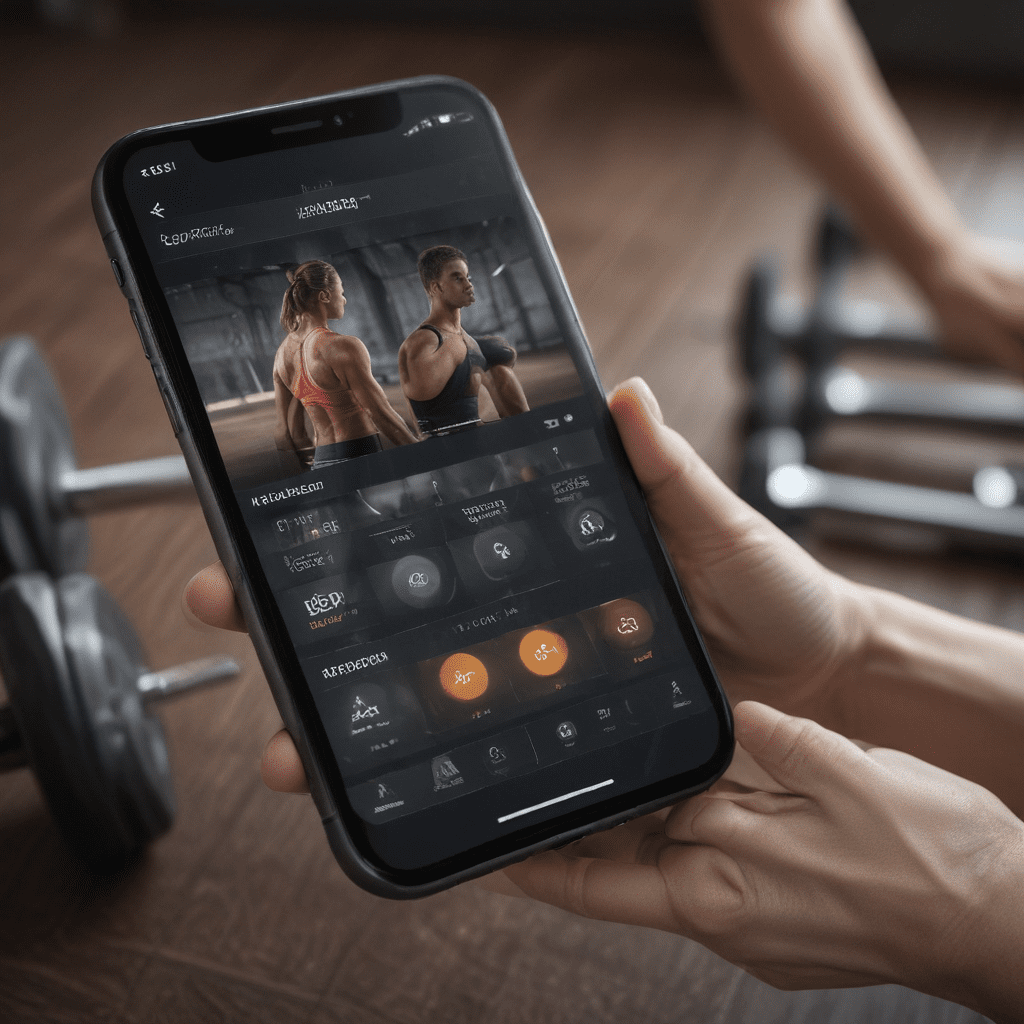Introduction: Personalized Fitness in the Mobile Era
The rise of mobile technology has transformed the fitness industry, empowering individuals to take control of their health and wellness. Personalized fitness apps offer a suite of tools and solutions tailored to individual goals, preferences, and fitness levels. With the ability to track progress, generate tailored workouts, monitor nutrition, analyze behavior, and connect with a community of like-minded individuals, these apps are revolutionizing the way people approach fitness.
Fitness Tracking Tools: Quantifying Progress
Fitness tracking tools are crucial for quantifying progress and staying motivated. They enable users to monitor steps, distance covered, calories burned, and heart rate in real-time. By providing objective data on activity levels, these tools help users set realistic goals, identify areas for improvement, and make informed decisions about their fitness regimens.
Personalized Workout Generators: Tailored Plans for Every Goal
Personalized workout generators leverage user data to create tailored workout plans that align with individual goals and abilities. These tools consider fitness levels, preferences, available time, and equipment to develop effective and engaging workout routines. By providing customized recommendations, workout generators eliminate the guesswork and ensure that users are always training at the optimal level for their specific needs.
Nutrition Monitoring and Calorie Tracking: Empowering Healthy Choices
Nutrition monitoring and calorie tracking apps empower users to make informed choices about their diet. They allow users to log food intake, track calorie consumption, and analyze nutritional content. By providing insights into dietary habits, these apps help users identify areas for improvement, create balanced meal plans, and achieve their weight loss or muscle-building goals.
Behavioral Analysis and Motivation: The Key to Sustainability
Behavioral analysis and motivation tools play a crucial role in helping users stay on track with their fitness journeys. These tools analyze user behavior, identify patterns, and provide personalized recommendations to improve motivation and adherence to fitness plans. By fostering a sense of accountability and support, these tools help users overcome obstacles, stay focused, and achieve their long-term fitness goals.
6. Wearable Integration and Data Synchronization: Connectivity for Holistic Fitness
Wearable integration and data synchronization enable users to connect their fitness trackers, smartwatches, and other devices to their mobile fitness apps. This seamless connectivity allows for the automatic transfer of data, providing a comprehensive overview of physical activity, sleep patterns, and other health metrics. By centralizing data from multiple sources, users gain a holistic understanding of their fitness progress and can identify areas for improvement.
7. Data Visualization for Actionable Insights: Empowering Informed Decisions
Data visualization tools within mobile fitness apps present complex data in an accessible and visually appealing way. Graphs, charts, and dashboards provide insights into progress over time, adherence to workout plans, and nutrition intake. By empowering users to visualize their data, fitness apps help them identify patterns, make informed decisions, and adjust their strategies to optimize results.
8. Artificial Intelligence and Machine Learning: Automating Efficiency
Artificial intelligence (AI) and machine learning (ML) algorithms play a significant role in automating various aspects of mobile fitness apps. These technologies analyze user data, identify trends, and provide personalized recommendations. AI-powered chatbots assist users with queries and provide tailored workout plans. ML algorithms adapt to user preferences and automatically adjust workout difficulty and nutrition suggestions. By leveraging AI and ML, fitness apps enhance user experience, streamline processes, and maximize results.
9. Community Building and Social Support: Shared Accountability and Inspiration
Community building and social support features within mobile fitness apps foster a sense of belonging and accountability among users. They connect individuals with similar goals, enabling them to share progress, offer encouragement, and participate in challenges. By creating a supportive and motivating environment, fitness apps encourage users to stay on track, celebrate successes, and learn from others in the community.
10. Tools for Data Security and Privacy: Protecting User Information
Mobile fitness apps handle sensitive user data, including personal health information. Robust data security and privacy measures are essential to ensure the confidentiality and integrity of this data. Fitness apps employ encryption techniques, secure data storage practices, and compliance with industry standards to protect user information. By prioritizing data security and privacy, fitness apps build trust and provide a safe environment for users to manage their health and wellness.
Frequently Asked Questions (FAQs)
Q: What are the benefits of using a personalized fitness app?
A: Personalized fitness apps offer tailored workout plans, nutrition guidance, data analysis, motivation, and community support, helping users achieve their fitness goals effectively and efficiently.
Q: Are fitness apps suitable for all fitness levels?
A: Yes, fitness apps are designed to accommodate various fitness levels. They provide customizable plans, workout variations, and progress tracking to suit individuals from beginners to experienced athletes.
Q: Can fitness apps help with weight loss or muscle building?
A: Yes, fitness apps offer calorie tracking, nutrition monitoring, and tailored workout plans designed specifically for weight loss or muscle building goals.
Q: Do fitness apps integrate with wearable devices?
A: Many fitness apps seamlessly integrate with wearable devices to track data such as steps, heart rate, and sleep patterns, providing a comprehensive overview of physical activity and overall health.
Q: Is data in fitness apps secure and private?
A: Reputable fitness apps prioritize user privacy and employ encryption, secure data storage, and compliance with industry standards to protect sensitive information.

